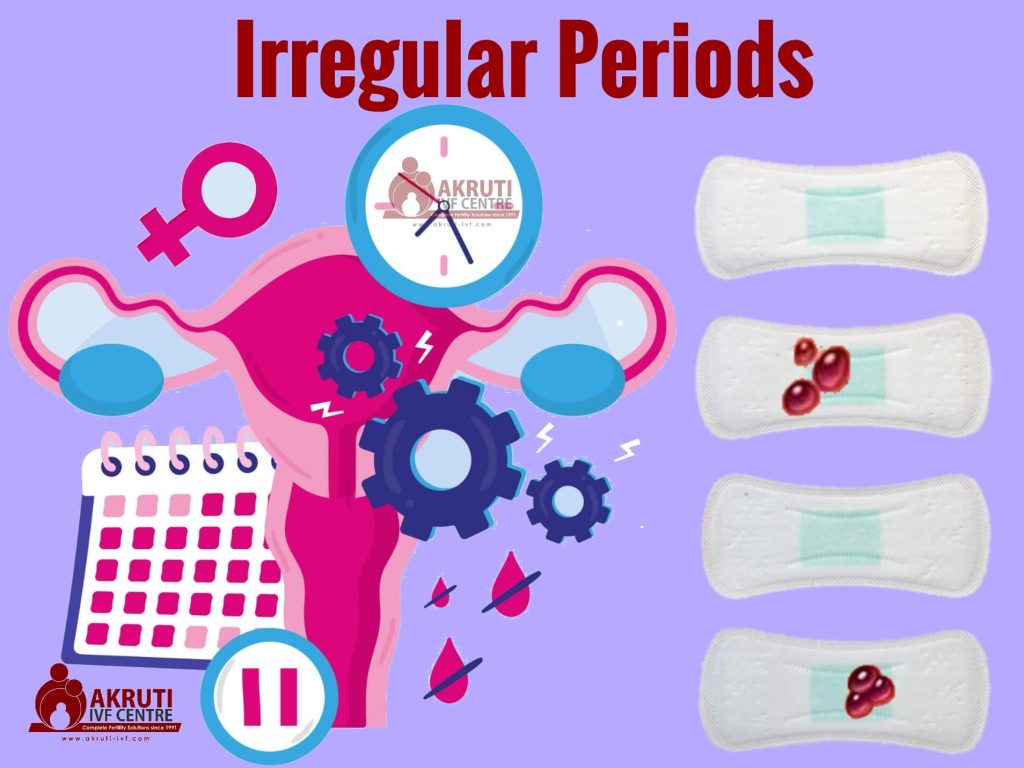
How do I know if I have irregular periods?
Everyone woman of reproductive age would have an average menstrual cycle that lasts for 28 days. Some women have shorter or longer cycles.
Signs of irregular periods include:
- The gap between your menstrual cycle is less than 21 days or more than 35 days
- Your period blood flow is either lighter or heavier than usual
- You have consecutively missed three of more periods
- Bleeding for more than 7 days
- Length of every menstrual cycle is different (difference of more than 9 days)
- Painful periods
To track your period: To check whether you have irregular periods, you should track your menstrual cycle every month.
Day 1 of your menstrual cycle is marked on your calendar as the first day of your period. The last day of your menstrual cycle for the month is the last day before your period starts again the following month.
What causes irregular periods?
Woman at any point of their reproductive life could experience irregular periods. In most cases, it is not a major cause for concern. Some causes of irregular periods are:
- Thyroid disorders- hyperthyroidism (over active thyroid gland) or hypothyroidism (under active thyroid gland)
- Polycystic ovary syndrome (PCOS)
- Extreme exercise
- Hormonal imbalances- lower estrogen levels
- Stress
- Uterine fibroids or polyps
- Pregnancy and breastfeeding
- Changes in weight- fast and large amounts of weight gain or loss
- Use of contraceptives- pills, intrauterine devices (IUDs), injections
- Onset of menopause
- Asherman’s syndrome (severe scarring of the uterus lining)
Does irregular periods impact my chances of pregnancy?
Women who have irregular periods, may not ovulate regularly (release an egg every month). This can make pregnancy difficult. Fertility treatment and hormonal medication can help improve your fertility outcomes if you have irregular periods.
How do you treat irregular periods?
Treating irregular periods is not always required. Your doctor would first address any underlying condition that can cause irregular periods, like thyroid hormonal supplementation for thyroid disorders, or birth control pills for estrogen or progesterone imbalances and PCOS. If irregular period is associated with severe pain, over the counter pain medication may also be prescribed.
Since weight gain can cause irregular periods in women, maintaining a healthy weight and lifestyle is essential. Regular exercise and a nutritious balanced diet can help. Maintaining stress levels is also advised to women.
If there is any structural problems or scaring in the female genital tract (fallopian tube or uterus), it can cause irregular periods. In these cases, corrective surgery is recommended.
Can I prevent irregular periods?
A few lifestyle changes that can be incorporated to help minimize your risk of irregular periods are:
- Maintaining a healthy lifestyle- eating nutritious food and exercising in moderation
- Maintaining a healthy weight
- Limit stress in your life- practice meditation and get enough rest
- Regularly check your hormone levels and meet your doctor for check-ups
- Use contraceptives as directed by your doctor

